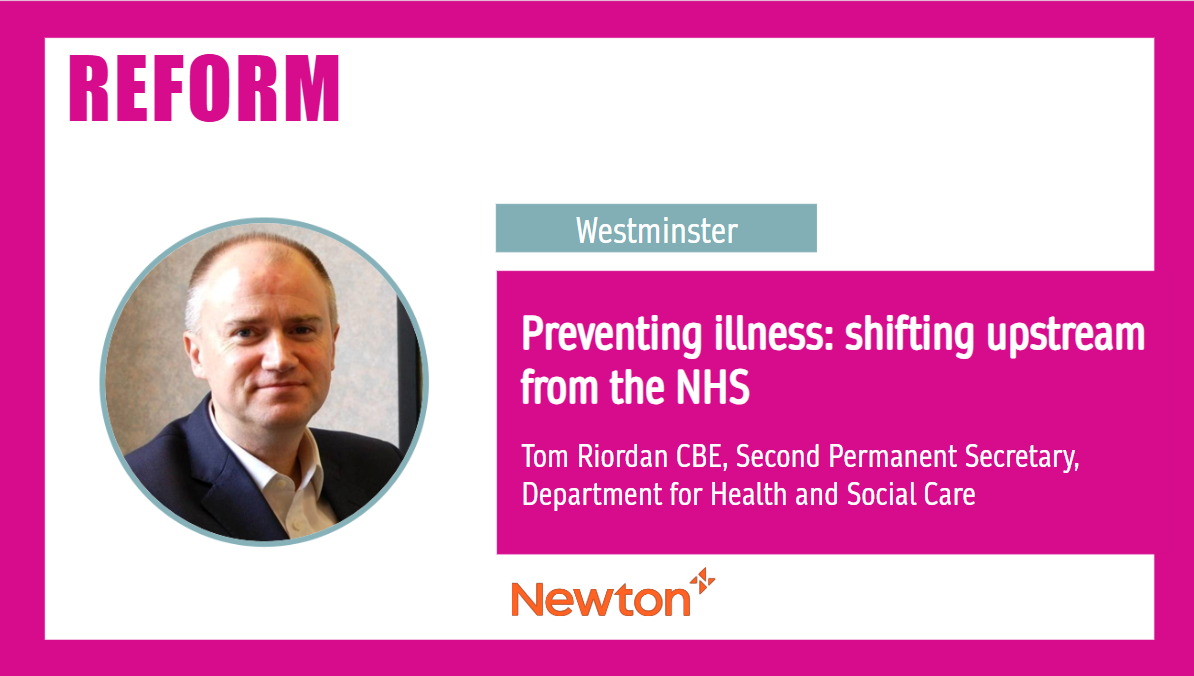Hit enter to search or Esc to close

‘Prevention’ has become the default answer to most of the big policy challenges facing public services. How can we put the NHS and social care on a sustainable footing? Prevent people from getting ill. How can we relieve pressure on the justice system? Prevent people from reoffending, or even better, prevent them from offending in the first place. How can we stem the ever rising welfare bill? Prevent people from falling out of work, and prevent young people leaving education and becoming NEET.
All noble goals. All things we’ve heard for decades.
Because while it’s easy to say we need to stop certain things happening, it’s a lot harder to explain how – particularly in the context of an overburdened State in which nearly all public services are, understandably, focused on crisis management. Yet the only sustainable route out of the situation we find ourselves – services at breaking point, facing long backlogs, increasingly complex cases, and tight finances – is by reducing and diverting demand. This pressured position requires that we act quickly to address growing fiscal pressures and take demand out of our creaking frontline services; delivering short-term gains while moving towards a more sustainable long-term model. The answer lies in rewiring how services work.
That is why we are delighted to be launching a new programme entitled ‘Building the Preventative State’. Together Reform and Newton will work with public service leaders to determine how to achieve the systemic shift required to deliver impactful prevention at scale.
That means identifying what to prioritise and where to start in designing and building prevention first public services, and thinking through the practical realities of how we achieve it. It means determining how money is spent, services redesigned, workforces configured and technology deployed. It means being granular about the types of prevention and the actions needed, for example, proactively identifying individuals and putting in place interventions which prevent, reduce and delay demand. Both primary and secondary prevention must be key pillars of the Preventative State.
It will mean taking a cross-service view, understanding cohorts of communities at a local level, and exploring how siloed budgets, data, systems and working can be overcome to ensure a whole-system approach to decision-making: too often the cost of an intervention falls in one budget while the benefits accrue in another. And that means exploiting place-based approaches designed around outcomes, and connecting policy-makers across central and local government.
It also means being clear about the evidence on what works, and having the right, high-quality data to identify where interventions can deliver the biggest bang for the public buck, and to evaluate the impact of more innovative or pioneering approaches. Technology has transformed how we use data to understand users and customise services – presenting exciting opportunities to understand populations and tailor interventions, maximising positive outcomes in both the short and long term.
Within this, scaleable prevention will recognise that different localities with different populations and needs will require different interventions, but that many of the principles of prevention success will be shared.
All of which requires the right workforce with the right skills, and a leadership that embraces new ways of working, including engaging with citizens, and a commitment to testing, learning and iterating.
The prize of prevention is well understood: a healthier, happier, more productive population. It means fewer children in care, reductions in homelessness and declines in domestic abuse; as well as increased capacity in hospitals and social care, courts and prisons, and employment services through reductions in demand. All of which means public services that are tailored, accessible and as far as possible upstream; and public finances that are stable and sustainable for the long-term.
The plan for getting there is less so.
Across a series of six events we will bring people together from central and local government, frontline public services and civil society, experts and policy-makers. We know there are brilliant pockets of innovation across the country, and exciting thinking happening across government. We want to connect those things, shape a plan and explore what can be implemented in the Parliament. The discussions we will facilitate – and the ideas you bring – will culminate in a publication outlining how we can build the Preventative State. Our first event will be on “Preventing illness: shifting upstream from the NHS”, with Tom Riordan, Second Permanent Secretary at the Department for Health and Social Care.
We can’t wait to get started.
Richard Lum, Senior Partner, Newton
Charlotte Pickles, Director, Reform think tank